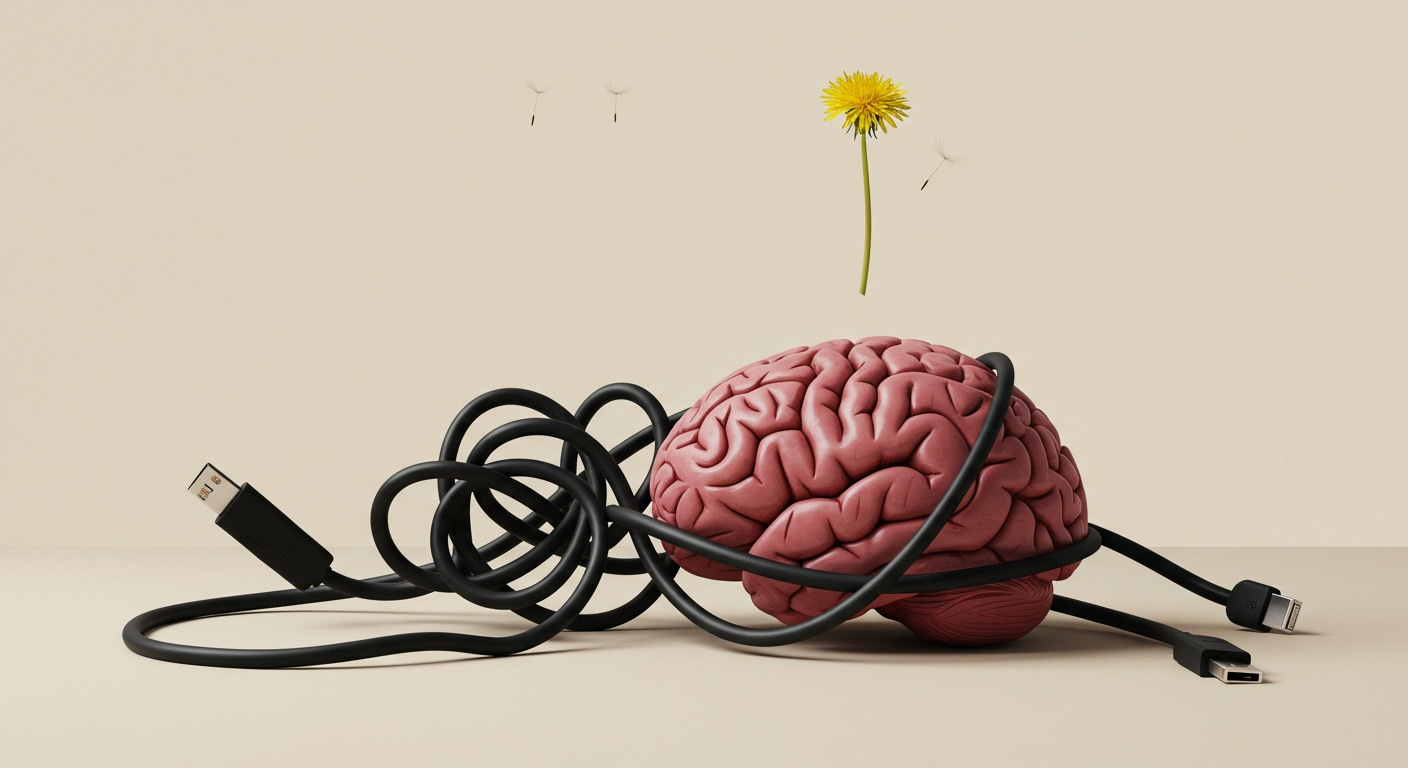The Algorithm's Cellar
How Dostoevsky Foresaw Our Digital Age's Deepest Anxieties
Dive deep into the uncanny parallels between Dostoevsky's 19th-century philosophical insights, particularly the 'Underground Man,' and the profound anxieties of our hyper-connected digital age. This comprehensive guide explores how the burden of infinite choice, the illusion of freedom, and the pervasive influence of algorithms echo Dostoevsky's premonitions, offering practical strategies to navigate the modern 'digital cellar.'
A Whispering Prophecy from the 19th Century
It might seem odd, perhaps even counter-intuitive, to turn to a 19th-century Russian novelist like Fyodor Dostoevsky when pondering the complexities of our hyper-connected, digital world. Yet, as I delve into his profound psychological explorations, particularly in 'Notes from Underground,' I find an unsettling, almost prophetic, resonance with the anxieties that define our contemporary existence. Dostoevsky didn't have smartphones or algorithms, but he had an unparalleled understanding of the human condition, specifically the inner turmoil bred by an excess of consciousness and the paradox of absolute freedom.
The Burden of Infinite Choice: Dostoevsky's Paradoxical Freedom
Dostoevsky's 'Underground Man' is a figure perpetually at war with himself and the world. He is a man who, in his desperate assertion of free will against the 'laws of nature' and the dictates of rational self-interest, finds himself paralyzed. He cannot act because every choice is fraught with infinite possibilities and potential contradictions. This isn't merely indecision; it's a profound existential paralysis born from an overwhelming consciousness, where the desire for absolute freedom becomes a self-imposed prison. It's the ultimate thesis of Dostoevsky: when unfettered rationality meets the irrational core of human desire, it breeds a unique torment.
The Underground Man is the spiritual ancestor of many modern individuals, a figure trapped by his own hyper-consciousness, unable to act because he can foresee all possible outcomes and their futility.
– A Literary Critic
This concept of paradoxical freedom, where the ability to choose everything leads to choosing nothing, lays the groundwork for understanding our digital predicament.
The Lure of the Algorithm: Our Modern Underground
Now, let's consider the antithesis: our digital labyrinth. We live in an era that promises infinite information, boundless connection, and unprecedented choice. Algorithms curate our feeds, recommend our entertainment, and even shape our thoughts, all under the guise of optimizing our experience or expanding our horizons. Yet, what often emerges is an echo chamber, a feeling of being constantly overwhelmed by data, and a strange sense of passivity. Like the Underground Man, we are presented with an overwhelming array of 'choices'—what to watch, what to read, whom to follow—yet these choices are often pre-filtered, nudged, and subtly determined by unseen forces. This creates a new kind of 'underground,' not a physical cellar, but a digital one, where our agency feels increasingly diluted by the very systems designed to empower us.
From Hyper-Rationality to Hyper-Anxiety: The Data-Driven Soul
Here lies the synthesis, the point where Dostoevsky's premonition truly crystallizes: the convergence of his psychological insights with our data-driven reality. The Enlightenment's emphasis on rationality and progress, which Dostoevsky's Underground Man fiercely rebelled against, has found its ultimate expression in the digital age's 'dataism.' We strive to quantify, categorize, and predict every aspect of human behavior, believing that optimizing our lives through algorithms will lead to greater efficiency and happiness. Yet, much like the Underground Man’s struggle, this hyper-rational, data-driven approach ironically generates a new species of anxiety. We become hyper-aware of our digital footprints, our curated selves, and the invisible forces at play, often leading to a profound sense of inauthenticity and a gnawing feeling of being constantly observed and categorized. The digital age, with its relentless pursuit of optimization and prediction, mirrors Dostoevsky's fear that human freedom would be crushed by an overbearing, 'rational' system, ultimately leading to a deeper, more pervasive form of anxiety.
In an age of algorithms and data, our freedom is often redefined not as the absence of external constraint, but as the choice within an increasingly defined and predicted landscape, a subtle form of digital determinism.
– A Contemporary Tech Ethicist
Finding Our Way Out of the Digital Cellar: Practical Paths Forward
So, how do we navigate this digital cellar that Dostoevsky, in a sense, warned us about? The solution isn't to retreat entirely, but to cultivate a conscious relationship with our digital tools. Firstly, recognize the illusion of infinite choice. Prioritize depth over breadth; choose a few meaningful sources of information or connection rather than chasing every fleeting trend. Secondly, cultivate digital 'off-ramps'—dedicated time away from screens to reconnect with the physical world and your inner self. This builds resilience against algorithmic nudges and reasserts personal agency. Thirdly, engage critically with the information you consume; question the sources, seek diverse perspectives outside your immediate algorithmic bubble, and actively resist the pull towards passive consumption. It's about reclaiming your intellectual and emotional autonomy, one conscious choice at a time.
Echoes in the Scroll: What Dostoevsky Still Teaches Us
Dostoevsky's profound exploration of human psychology continues to resonate, proving that the fundamental struggles of consciousness transcend time and technology. He reminds us that true freedom isn't the absence of limits, but the courageous act of choosing within those limits, of asserting our irrational, unpredictable humanity against any system—be it 19th-century rationalism or 21st-century algorithms—that seeks to define or diminish us. His 'Underground Man' serves as a perpetual mirror, reflecting our own digital anxieties and urging us to seek genuine connection, authentic self-expression, and a conscious reclamation of our inner lives amidst the digital din.



